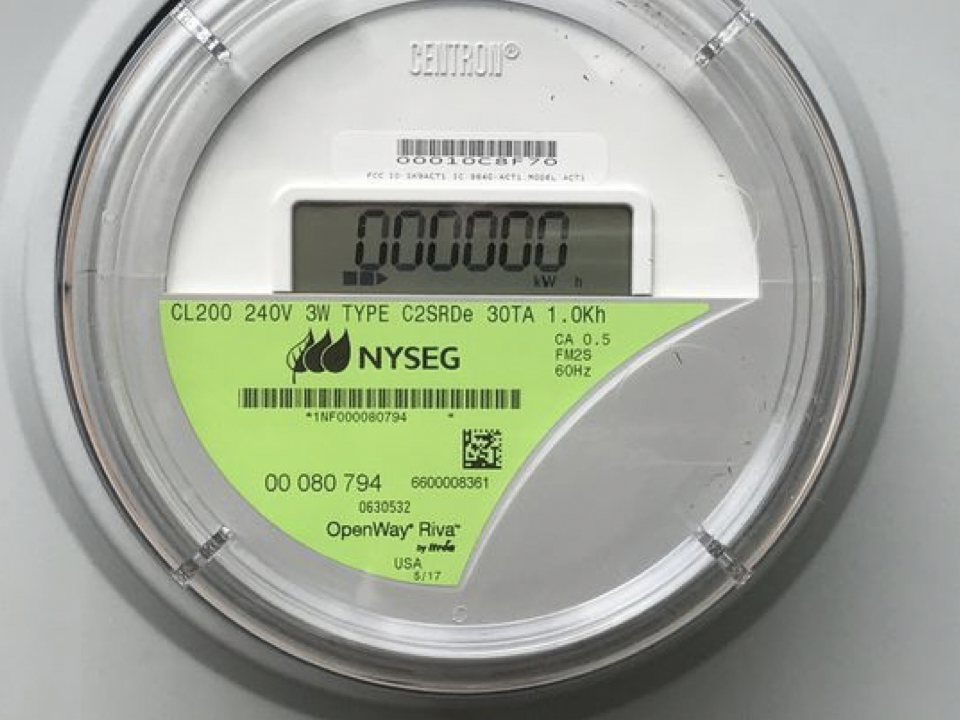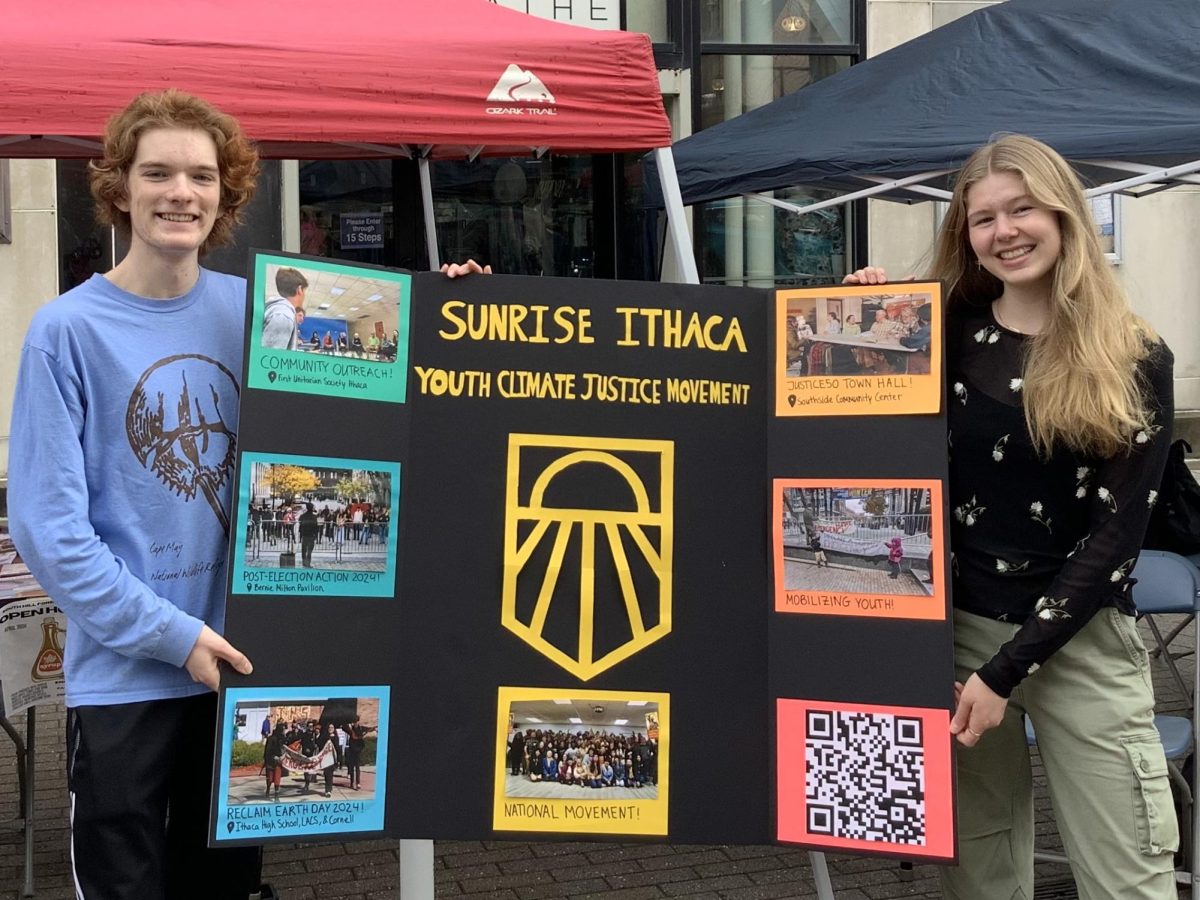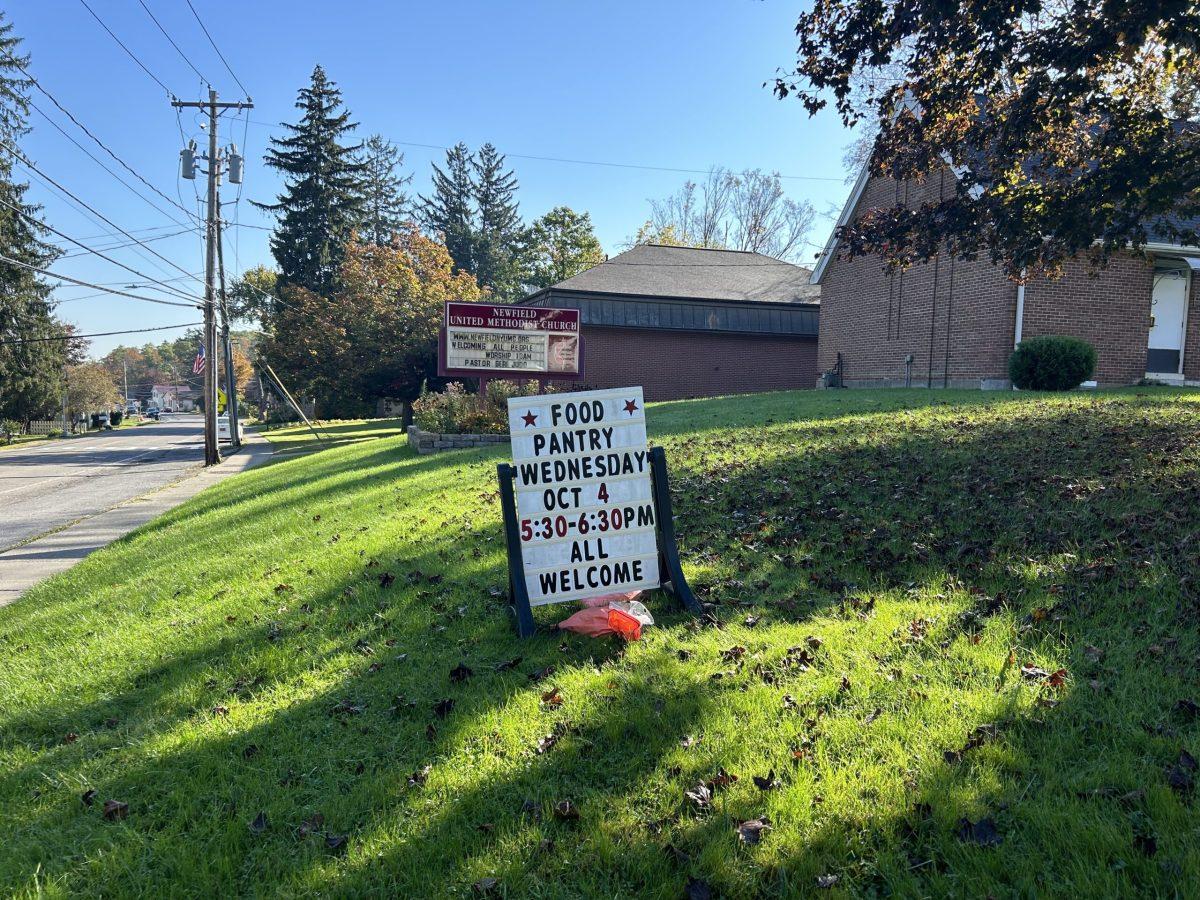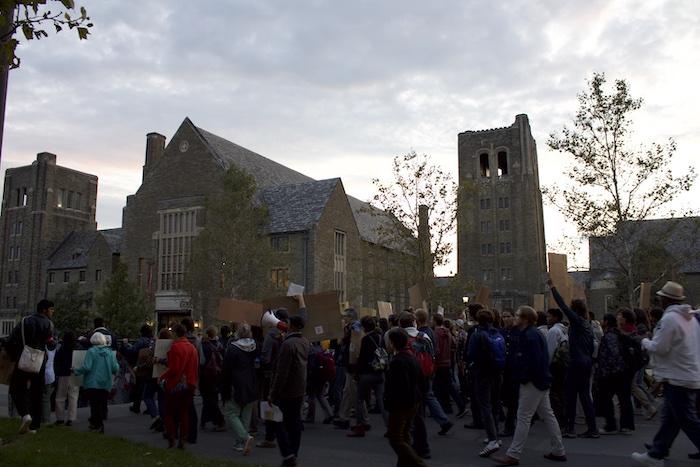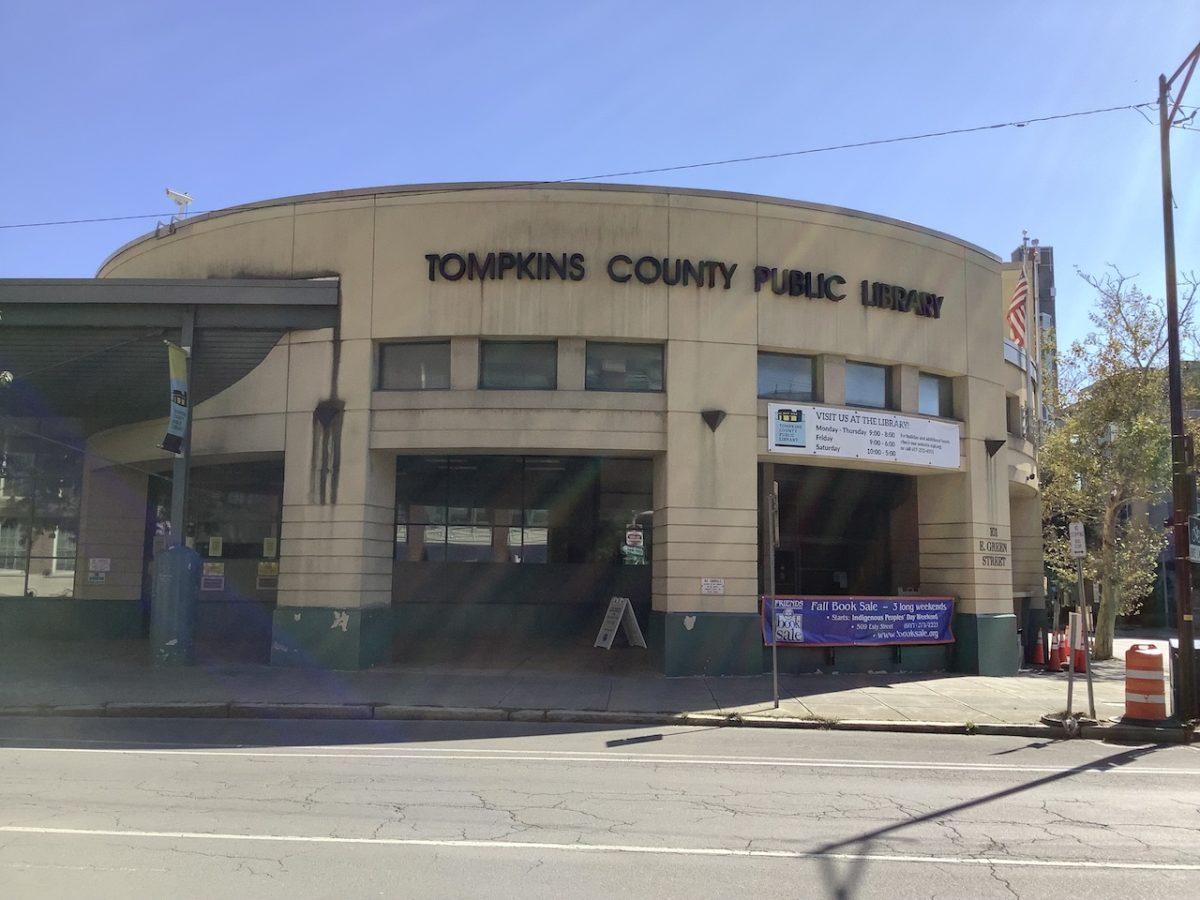The recent dip in temperature accompanied by the first snowfall of the year serve as a reminder that winter is drawing near. As you prepare to crank up the thermostat, Anne Rhodes from Cornell Cooperative Extension (CCE) is educating the community about how to stay warm and stay green at the same time.
CCE is working with local and state organizations to increase awareness about the importance of alternative energies in Tompkins County. On Friday, Nov. 9, Rhodes spoke at Cornell University’s College of Human Ecology about how both home and business owners can reduce their energy use, and how the grid is changing.
During the talk, Rhodes described sustainability as imperative for the future of this planet.
“We’ve gotten to a point in this country where if everybody on the planet used as much energy as we do, we would need four planets,” Rhodes said. “We don’t have four planets. In fact, we’re rapidly running out of this one that we’ve got.”
But Rhodes also sees it as an opportunity for residents to save money and live more comfortably.
Jonathan Comstock, director of a local clean energy organization called HeatSmart Tompkins, has seen the positive effects of heating and cooling his own home with sustainable energy.
Comstock uses air-source heat pumps to control the temperature in his home. Air-source heat pumps act similarly to refrigerators; they pull heat into the building during wintertime and push heat out of the building during summertime.
“[The air-source pumps] have done a wonderful job with heating, they’ve been quite reliable,” Comstock said.
He also praised air-source heat pumps’ efficiency as air conditioners in the summer, when his home used to get “unbearably hot.”
Ground-source, also known as geothermal, is another kind of heat pump. It utilizes the earth’s underground heat, which stays relatively consistent year-round, to heat and cool homes.
Ground-source heat pumps have a higher installation cost than air-source, but they tend to last longer, and there are tax incentives in place for New York residents who use them.
“There’s a [New York State Energy Research and Development Authority] rebate, and then there’s a 30 percent federal tax credit that you can take after that, and it ends up paying for practically half of the cost of the system,” Comstock said.
Additionally, there are incentives in place for NYS residents who get an audit of energy-use in their home or business, more efficient refrigerators and solar technology installations.
“Anybody of any income level is eligible for some financial benefit,” Rhodes said.
The other portion of Rhodes’s talk was about “Energy Smart Community,” a new project launched by the utility company New York State Electric and Gas (NYSEG) in partnership with CCE.
The project involves the installation of smart meters in selected Tompkins County residents’ homes. Homeowners with smart meters can view their own energy usage with an online program called Energy Manager through NYSEG’s website. Smart meters also help NYSEG evaluate how much energy they need to purchase and how to maximize use of green energies. NYSEG plans to expand the program to all customers in the next few years.

Rhodes wants to ensure that these smart meters help Tompkins County residents form a more active relationship to the energy they use.
“Now we’re in business, now we’re going to reduce our energy use… Let’s see what we can do together, let’s see how we can work together to really put Tompkins County on the map and become a leader,” Rhodes said, describing CCE’s mission to mobilize area residents.
Compared to downstate, and even compared to the rest of the country, the Upstate New York region has been generally ahead of the curve in terms of green energy, getting just over 10 percent of its energy from fossil fuel sources. But Rhodes says that residents need to keep pressuring the government to go even further and cut out fossil fuel usage completely.
“Keep it in the ground,” Rhodes said.

